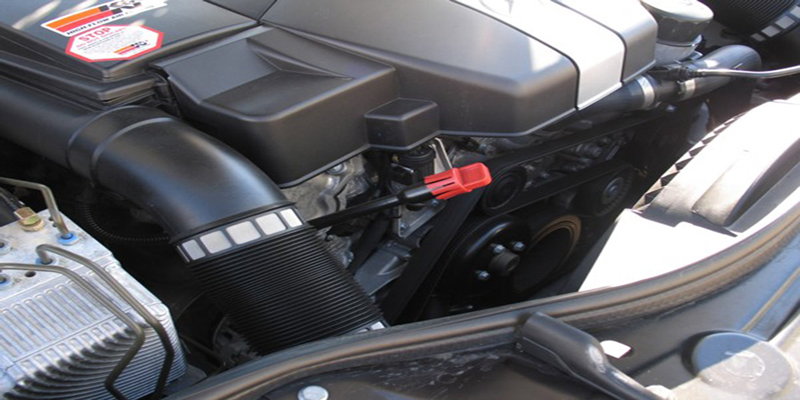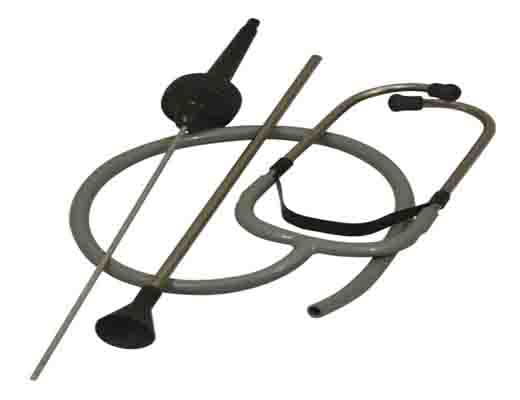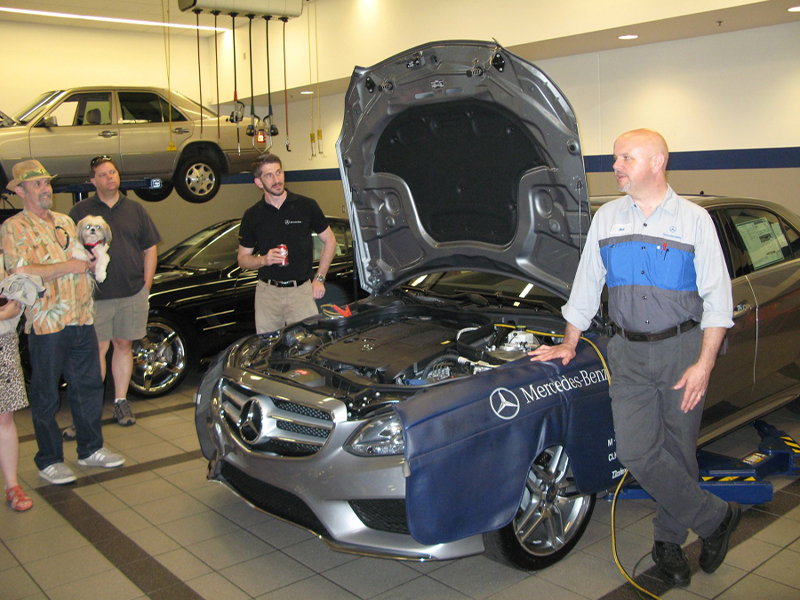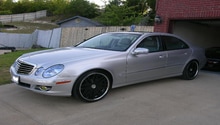Mercedes-Benz E-Class and E-Class AMG: Why is My Engine Knocking?
A Mercedes-Benz E-Class engine should be smooth and quiet. A knock usually indicates a problem. Read on to diagnose this sound in your E-Class or E-Class AMG.
This article applies to the Mercedes-Benz E-Class and E-Class AMG (2002-2009).
Unless you have a diesel, your car's engine should run quietly. The time of start up is when there is the best chance of strange noises occurring. There are a few things that could cause your engine to make noise. Some are easy fixes and some are not. By using a mechanic's stethoscope you can understand the noise and the possible area it is coming from much better. Diagnosing an engine noise can be very complicated even for a dealer. Here are a few things you can check off the list before you seek professional help. You will have to get out of your comfortable interior and get under the hood to listen for the noise though.

Materials Needed
- Engine oil as called out in your owner's manual
- Mechanic's stethoscope
Step 1 – Check oil level
If your engine is low on oil, the noise you hear may be a death rattle.
- The oil in your engine is there for many reasons. Lubrication is one, but oil pressure also operates cam adjusters and the timing chain tensioner.
- It is easy for you to check your engine oil level. Just check the dipstick under the hood for the correct fluid level.
- If your engine is low on oil, add the type that is called out in your owner's manual until it reads full on the dipstick.

Figure 1. Look at the dipstick to check the engine oil level.
Pro Tip
Keeping your oil and filter changed is cheap insurance for your vehicle.
If the engine oil level is within the normal range, proceed to Step 2.
Step 2 – Locate the origin of the noise
Use your stethoscope to help track down where the knock is coming from. If it happens only at start up, you may want to have someone else start the engine while you have the hood open listening for it. If it's coming from the engine, use your stethoscope to pinpoint where. If it's coming from the valve cover, it could be CAM adjusters. If it's coming from the front cover, it could be the timing chain or tensioner. If it is coming from deep inside the engine, it could be rod bearings or carbon build up on the pistons. Also, don't forget to listen around the engine bay for quirks. There are a number of relays and and switches that could make noises which would be an easy fix.
If the noise happens when the car is warming up or after it is shut off and is coming from underneath, it could be a heat shield. They are sheet metal so they can shrink and expand from the heat of the exhaust. When that happens, the noises they make can surprise you.

If you cannot locate the knock, or it is deep within the engine, read on to Step 3.
Step 3 – Ask for help
Engine noises are usually never good. The sooner you find out what the noise is the better. If an un-diagnosed knock is not addressed, what could have been a minor repair can turn into a major one. In this case, time is not on your side. Seeking the help of a skilled mechanic to find your knock will solve the problem.
Pro Tip
Some issues are covered under recall campaigns above and beyond a warranty. It is advisable to check with your dealer to see if your noise is covered.

Related Discussion
- Engine Knocking Sound Start Up - MBWorld.org






